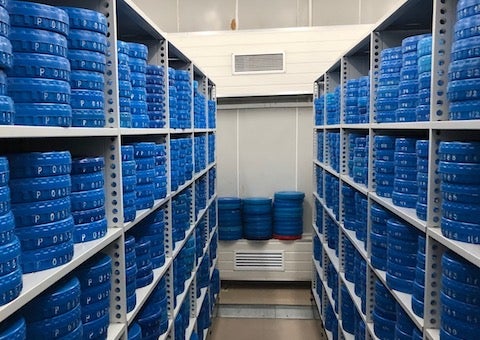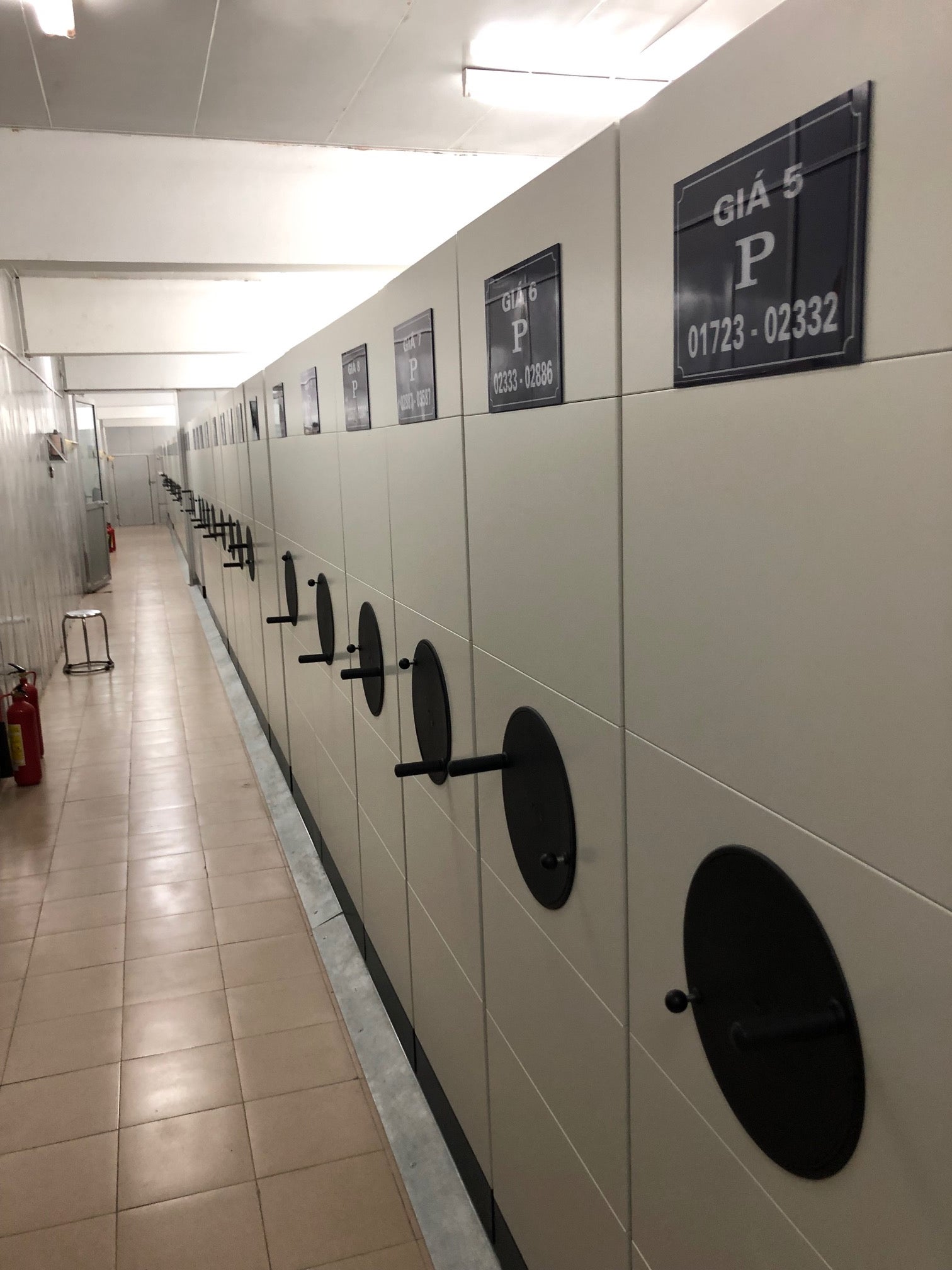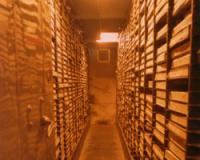
On the last day of my recent trip to Hanoi, I visited the Vietnam Film Institute in the Ba Đình District, just west of the city center and the old French quarter, where I was staying. I was greeted by Hoang Mai, an assistant of Director Vu Nguyen Hung, who regrettably had to attend a funeral. Despite the sad occasion, Ms. Mai answered questions and gave a tour of their film vaults, which are the most modern and technically efficient in Southeast Asia.
A relatively young organization, the Viện phim Việt Nam (Vietnam Film Institute) was founded in September 1979 as the Vietnam Film Documentary Institute, having grown out of the North Vietnamese government’s Film Department, established in 1965. Before unification of the country at the end of the Vietnam War, film archival activities were quite rudimentary, although dedicated staff did what they could, given the vagaries of war. The Institute moved into its present location in 1989, after construction began in 1982 with the support of the Ministry of Culture and Information (now the Ministry of Culture, Sports and Tourism). The Institute also maintains another set of vaults and offices in Ho Chi Minh City, formerly Saigon.

In keeping with its original name, the Institute is primarily responsible for collecting and preserving all documentary films, produced by state-funded entities, including more than 20,000 titles in 16mm and 35mm formats. During the Vietnam War, especially, the government produced hundreds of newsreels and documentaries propagandizing the Communist Party’s role in the war, many of which were recut and distributed in this country by Third World Newsreel and other leftist, anti-war organizations. While Vietnamese fiction film production began in the 1920s with a number of films shot in Hong Kong in the 1930s, the first feature shot in the North was completed in 1959: Together on the Same River. Apparently none of the films from the French colonial period survive, and the Institute is also not responsible for collecting privately funded fiction features made in Vietnam, since the end of the “subsidy period,” i.e. since the rebirth of a market economy in 1987. The Institute apparently also saved some feature films made by private companies in South Vietnam, presently housed in Saigon, but were reluctant to discuss these. (UCLA Film & Television Archive recently received a collection of features produced in the Republic of Vietnam by Van Films, which its present owner, Phi Ha, retrieved from labs in Hong Kong and Taipei).
While in Vietnam, I watched one of the newest “privately funded” Vietnamese films, Furie (Hai Phuong) (dir. Le-Van Kiet, 2019), a kung fu action film involving a single mother who has moved to the countryside of Hội An to escape her criminal past. However, when her child is kidnapped and trafficked for organs, she goes back into action, relentlessly pursuing the gangsters. Well-made and beautifully shot in nighttime Saigon, the film qualifies as a film noir and a kung fu pic. However, it is also not the kind of film that would be supported by the country’s ruling party, which may explain their archival politics regarding “private” films.
As a member of the International Federation of Film Archives (FIAF) in good standing, the Vietnam Film Institute conducts an extensive program of preservation and digitization. It is also an important member of the Southeast Asia-Pacific AudioVisual Archives Association (SEAPAVAA) and has hosted several conferences. Its vaults, which store film materials at 10-12° C and 30-35% humidity with compact shelving, are very impressive, especially given the extreme humidity in both Hanoi and Saigon. A separate facility stores the country’s animated film production.
The Hanoi location also includes a large cinema, where archived films, classic films, and films awarded national and international prizes are screened, but the theater is presently closed for renovations. The Institute also distributes films for screening in other government and cultural institutions, and maintains a program of research and publication on film historical subjects, supporting academic studies, and the production of educational films, utilizing historical film material.
It is my hope that this first contact with colleagues at the Vietnam Film Institute will lead to cooperation in the future with UCLA Film & Television Archive.
< Back to the Archival Spaces blog






 Mobile Navigation
Mobile Navigation

